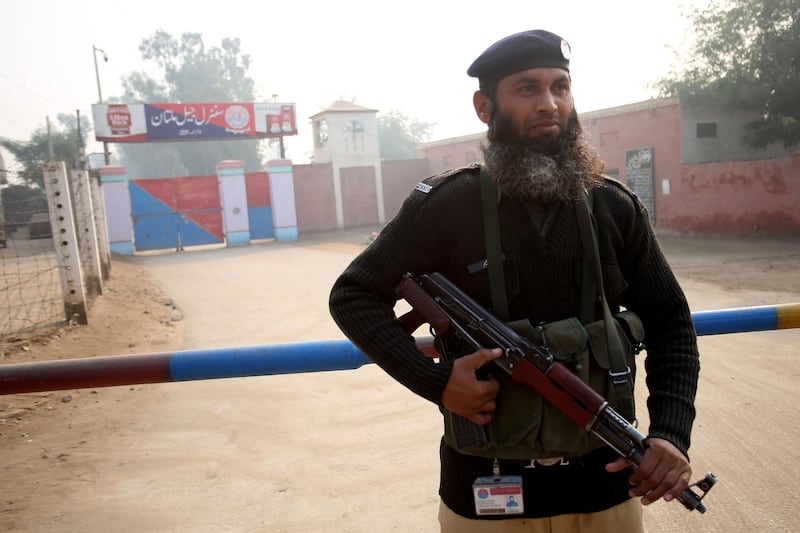A Pakistani university lecturer has been sentenced to death for blasphemy in a verdict denounced by rights groups as a gross miscarriage of justice.
Junaid Hafeez was sentenced to hang six years after he was accused of making blasphemous social media posts.
The death sentence handed down by a court in the eastern city of Multan has again highlighted Pakistan's harsh blasphemy laws.
Hafeez's lawyers alleged he was framed by students from an extremist party who objected to his liberal and secular views. In the weeks before the verdict, his family and supporters had been quietly optimistic he would be found not guilty.
Instead the court ruled: “He shall be hanged by neck till his death subject to its confirmation by the honourable high court.”
But rights groups condemned the decision.
“This is a vile and gross miscarriage of justice,” said Rabia Mehmood, Amnesty researcher for Pakistan.
She went on: “Junaid has been in solitary confinement since 2014 and in 'extreme' confinement for over a year. His mental and physical health has been severely impacted. Junaid's family, while being at risk themselves have lost so much over the years while fighting for their son.”
Pakistan has never carried out a blasphemy death sentence, but those convicted can spend years in solitary confinement on death row awaiting appeals. A United States government report on international religious freedom released on Friday said there were at least 40 people on death row in Pakistan after blasphemy convictions.
Blasphemy accusations are so incendiary they do not always make it to trial, with mobs instead sometimes lynching the accused. Hafeez's previous lawyer, Rashid Rehman, was shot dead in May 2014 in his office after he was threatened for taking the case. At least nine judges are reported to have transferred through the course of the case.
Hafeez, 33, quit his studies at Pakistan's top medical college to pursue a passion for art and literature. He gained a Fulbright Scholarship and attended Jackson State University in Mississippi where he studied American literature, photography and theatre.
He was arrested in March 2013 while a visiting lecturer at the Department of English Literature of the Bahauddin Zakariya University in Multan.
Rights groups say blasphemy cases are often concocted to settle scores, or in some cases to persecute religious minorities. In Pakistan's most notorious example, a Christian farmhand called Asia Bibi spent eight years on death row after she was falsely accused of committing blasphemy during a quarrel with fellow workers. Her acquittal on appeal sparked three days of protests by religious hardliners.
Asad Jamal, defence lawyer for Hafeez, said the lecturer would now appeal. "There can't be a fair trial in blasphemy cases in Pakistan," he told Reuters. "We have a spineless system. No one can stand up to a blasphemy charge."
Asia Bibi fled to Canada after her release this year and used her first interview to plead for justice for other victims of the blasphemy laws.
“This blasphemy law should be reviewed and there should be proper investigation mechanisms while applying this law,” she said.






